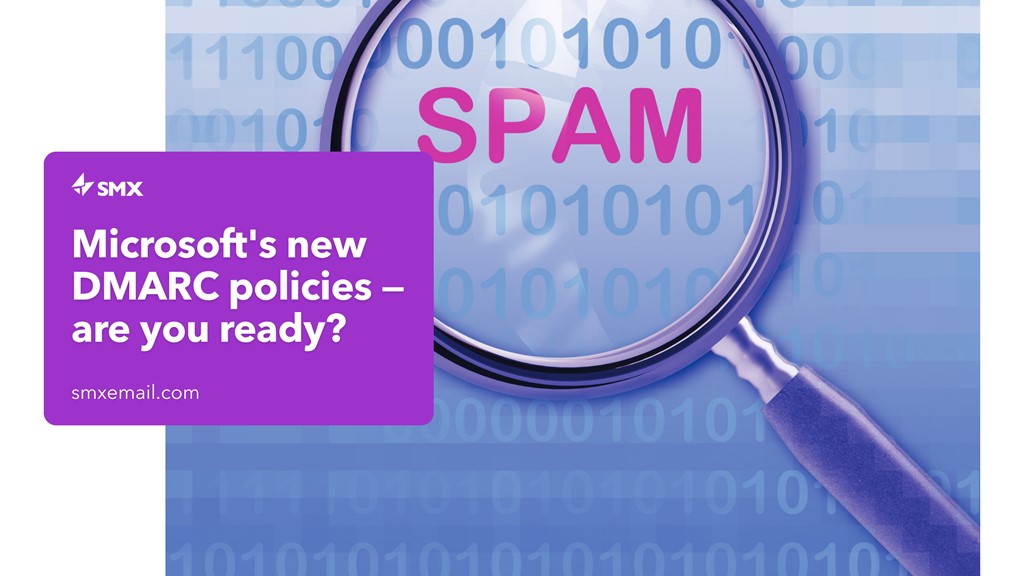Urgent: Microsoft's new DMARC policies — Are you and your customers ready?

Starting 5 May 2025, Microsoft is actively blocking unauthenticated emails from high-volume senders (5,000+ emails/day). The new error — “550 5.7.515 Access denied” — means your domain no longer meets Microsoft’s authentication requirements.
If you're not prepared, your legitimate business emails may never reach their destination. This is part of a broader and global industry shift to mitigate phishing, spoofing, and impersonation attacks.
If you operate in Australia or New Zealand, where Microsoft dominates business email, this update has critical consequences for your email deliverability.
What’s changing?
Microsoft’s new policy follows in the footsteps of Google’s DMARC enforcement in 2024 — part of a wider industry push to stop phishing, spoofing, and impersonation.
According to Microsoft’s latest guidance, all large-scale senders must now implement:
- SPF (Sender Policy Framework)
- DKIM (Domain Keys Identified Mail)
- DMARC (Domain-based Message Authentication, Reporting and Conformance)
This enforcement is now live. Microsoft’s servers are already rejecting emails that don’t meet SPF, DKIM, and DMARC standards with the error: "550; 5.7.515 Access denied, sending domain [SenderDomain] does meet the required authentication level."
Why it matters
In ANZ, most organisations rely on Microsoft’s email services — meaning this policy change affects the entire supply chain — most of your clients, partners, and teams. Even if you're not sending 5,000+ emails a day, your communications still rely on proper domain authentication. This isn’t just a bulk sender problem — it's a standard expectation for anyone doing business via email. Failing to comply could result in:
- Business disruption – critical emails using Microsoft services won't be delivered
- Lost opportunities – sales communications, quotes, and time-sensitive information may be blocked
- Damaged reputation – ongoing deliverability problems can harm your professional image
- Customer impact – clients may not receive important notifications or support responses
- Brand trust issues – failed messages or impersonation attempts could damage your brand’s credibility.
And it's not just about one domain — enforcement applies across all your domains. Many organisations (including MSPs and SMBs) still lack a clear DMARC strategy, assuming it’s too complex or only relevant to large-scale enterprises.
Without proper email authentication, your communications might not just be blocked, but could result in reputational damage and lost sales. If you’ve recently seen unexplained drops in deliverability or bounce reports with 5.7.515 errors, this is likely the cause.
The good news: it’s manageable, especially with the right partner. At SMX, we help organisations of all sizes roll out a scalable email authentication strategy — including DMARC, SPF, DKIM, and BIMI (Brand Indicators for Message Identification). Our technology and expert-led managed service solutions offer a customised DMARC strategy to help protect your domain(s) and ultimately your supply chain.
What you should do
Many businesses still haven’t configured proper DMARC policies — or assume their domain is fine. We offer a free domain discovery assessment to help you:
- Identify if your domains are correctly using SPF, DKIM, and DMARC
- Understand what Microsoft’s policy means for your domain(s) and your specific setup
- Prepare now, before enforcement disrupts your communications
From Gmail to Outlook — be DMARC compliant
If you joined us for our 2024 webinar on Google DMARC changes, this next step will feel familiar — but it’s not identical. Microsoft has its own enforcement timeline, thresholds, and quirks. The stakes are high again, and the time to act is now. If you send marketing emails, invoices, or support updates — they need to reach their recipients.
Compliance isn't just about security; it's about ensuring business continuity.
👉 Schedule your free DMARC assessment today (or just contact us — we’re here to help, no pressure)